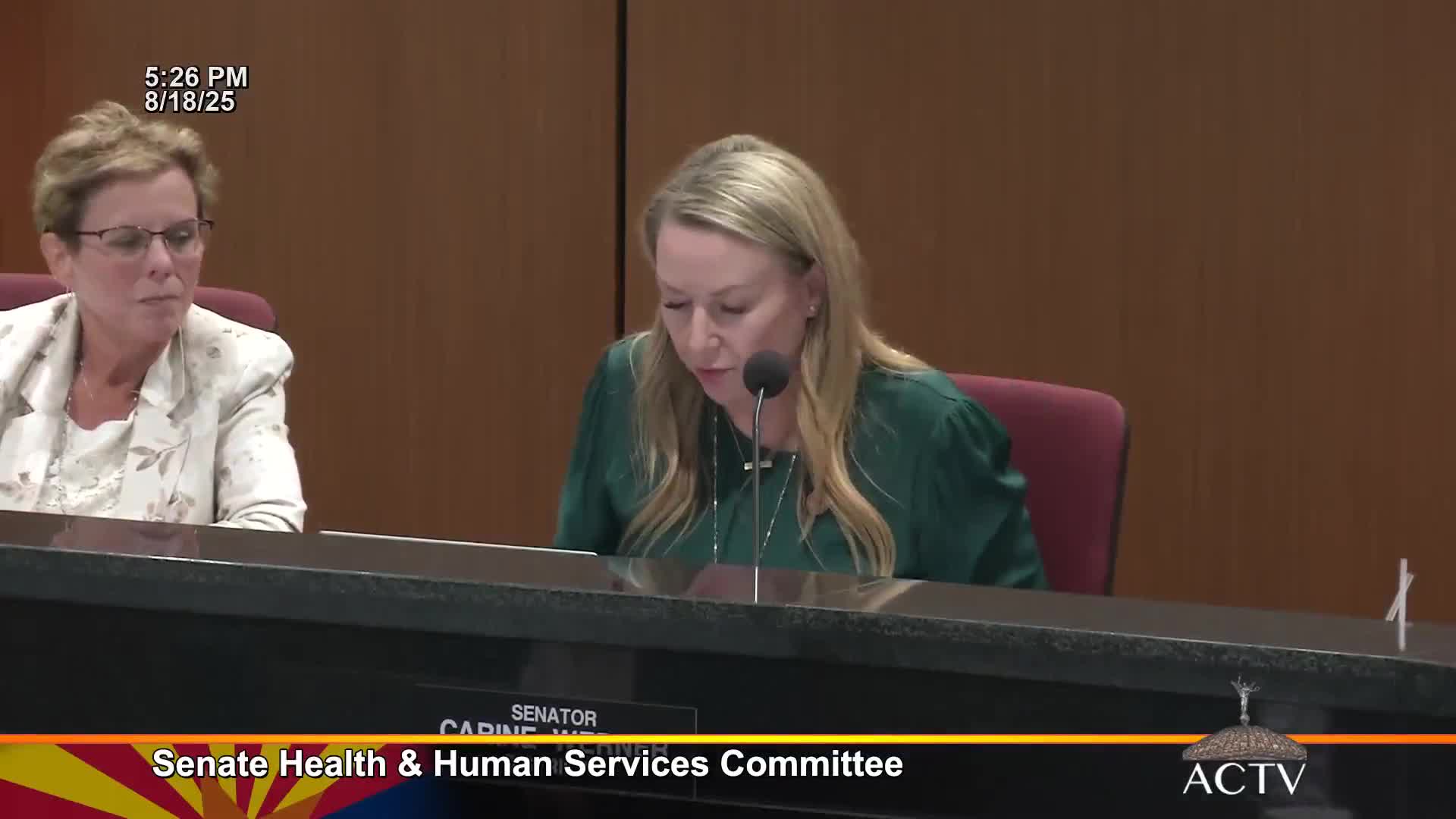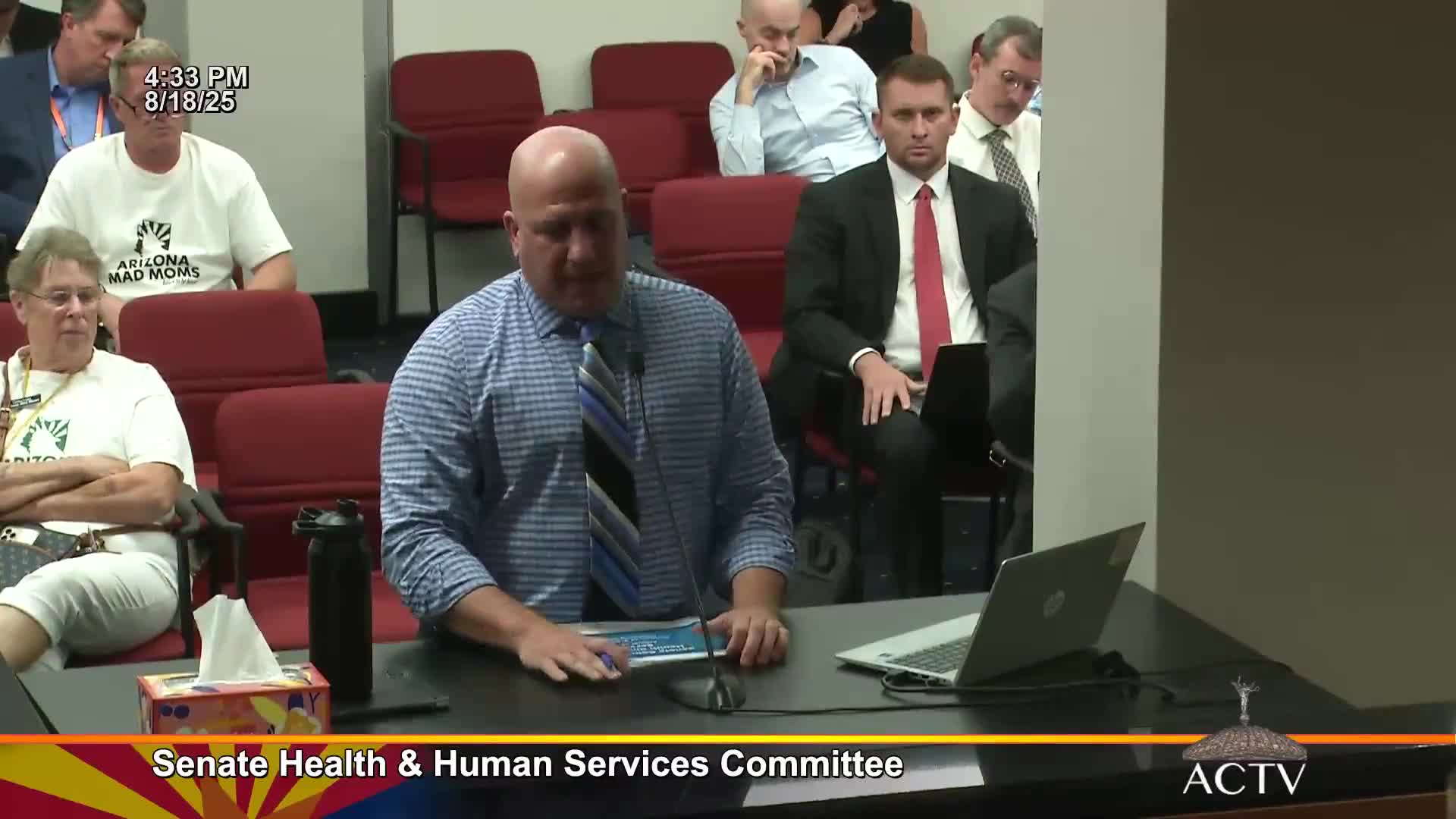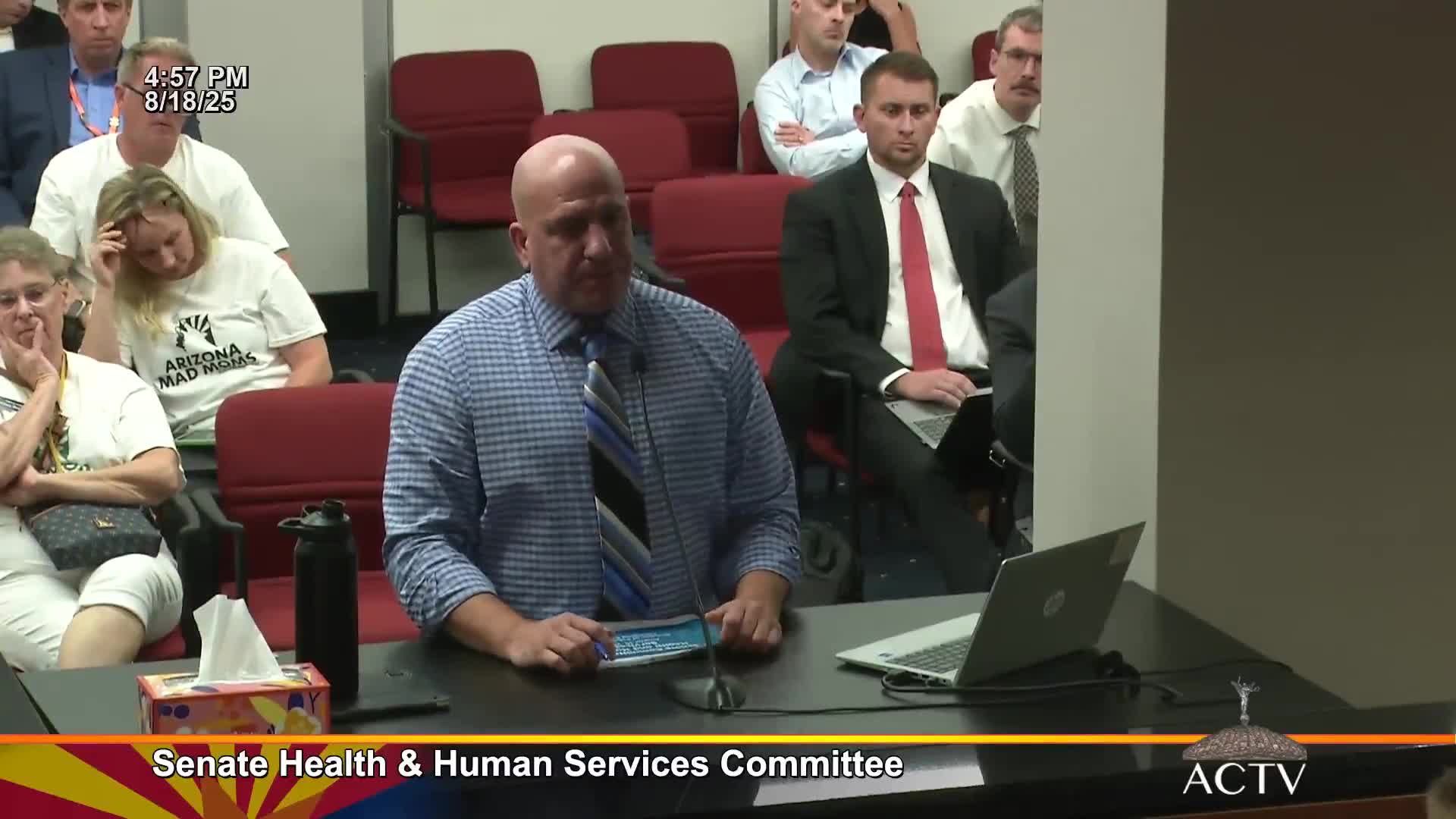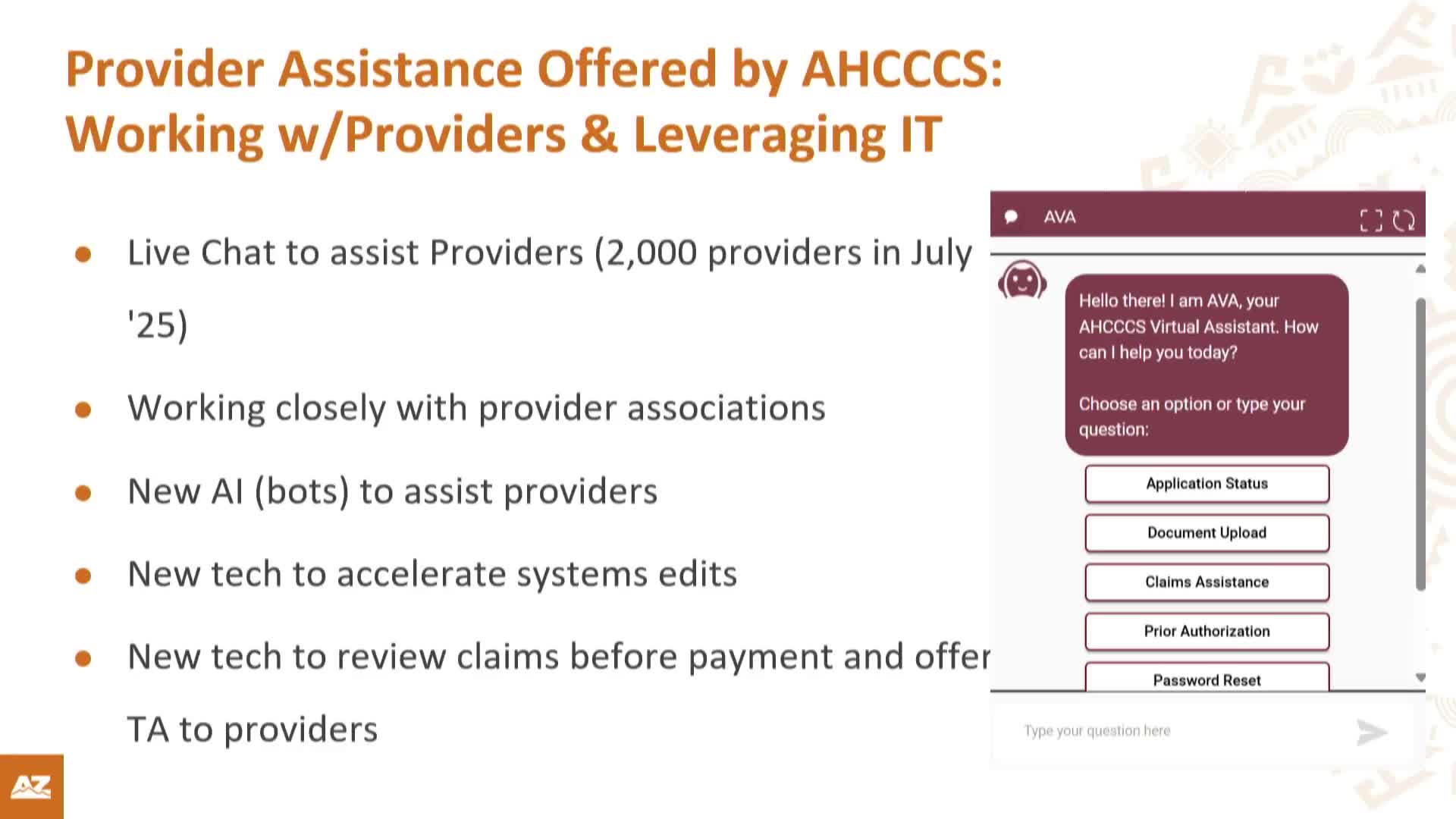Article not found
This article is no longer available. But don't worry—we've gathered other articles that discuss the same topic.

Providers testify of payment delays, staffing cuts and alleged retaliation as fraud response continues

Arizona Department of Health Services explains licensing role and sober‑living rule changes

Attorney General: hundreds charged in Medicaid‑behavioral health investigations, large forfeitures recovered

